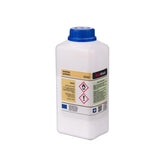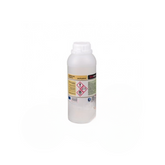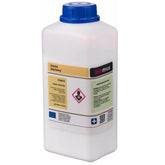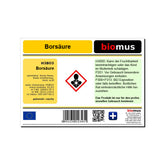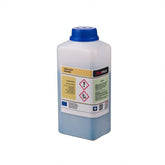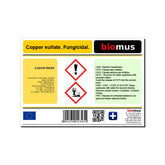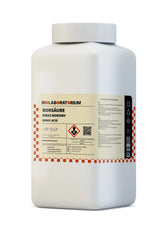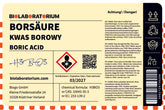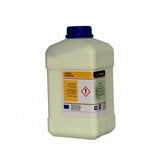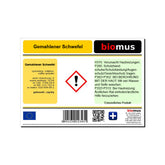Sodium sulfite is a chemical compound used in a wide range of industries and applications. As an important reducing agent and preservative, it finds broad use, but it is also important to know the properties and safety aspects of this substance. In this blog post, we will take an in-depth look at sodium sulfite - from its properties through technical applications to safety aspects.
What is Sodium Sulfite?
Sodium sulfite, chemically also known as disodium sulfite, is an inorganic compound with the chemical formula Na₂SO₃. It is a white, crystalline powder that is readily soluble in water. Sodium sulfite is formed when sulfur dioxide (SO₂) is reacted with sodium hydroxide (NaOH).
Sodium sulfite is an important reducing agent and has diverse applications in industry. For example, it is used as a preservative in foods, beverages, and cosmetic products to protect them from oxidation and spoilage. Additionally, it plays an important role in textile dyeing, paper manufacturing, and metal processing.
Properties of Sodium Sulfite
Sodium sulfite possesses a number of useful properties that explain its widespread use in industry:
Reduction properties
Sodium sulfite is a strong reducing agent and can therefore reduce other substances, i.e., remove electrons from them. This property makes it an important auxiliary in chemical processes.
Preservation properties
Sodium sulfite acts as an antioxidant by binding oxygen and thus preventing oxidation processes. This protects food, beverages, and cosmetics from spoilage.
pH buffering effect
Sodium sulfite has a pH-buffering effect and can thus stabilize the pH value in solutions. This is particularly important in the food industry.
Solubility
Sodium sulfite is highly soluble in water, which facilitates its handling and processing.
Thermal stability
Sodium sulfite is thermally stable up to temperatures of about 200°C and can therefore also be used at higher temperatures.
Technical applications of sodium sulfite
Due to its versatile properties, sodium sulfite is used in numerous industries:
Food and beverage industry
Here, sodium sulfite serves as a preservative to prevent oxidation and microbial spoilage. It is used, for example, in wine, beer, fruit juices, dried fruits, and potato products.
Textile industry
In textile dyeing, sodium sulfite is used as a reducing agent to decolorize dyes, thereby bleaching or decolorizing textiles.
Paper industry
Sodium sulfite is used in the production of wood pulp and chemical pulp to remove wood constituents and improve paper quality.
Metal processing
In metal processing, sodium sulfite is used to protect metal surfaces from oxidation and prevent corrosion.
Chemical Industry
As a reducing agent, sodium sulfite plays an important role in various chemical synthesis processes.
Water Treatment
Sodium sulfite is used to remove chlorine and other oxidizing agents from water to prepare it for human use.
Photography
In photography, sodium sulfite serves to fix photographs and remove silver halides.
Safety Aspects of Sodium Sulfite
Although sodium sulfite is considered safe in many applications, some safety aspects must be observed when handling and storing it:
Health Risks
Sodium sulfite can trigger allergic reactions in sensitive individuals, particularly in asthmatics. Therefore, caution is advised when using it in food and cosmetics.
Fire Hazard
Sodium sulfite itself is not flammable, but can cause fires when in contact with strong oxidizing agents. Therefore, safe storage of sodium sulfite is important.
Environmental Aspects
Sodium sulfite can lead to oxygen deficiency in water bodies and thus pollute the environment. Proper disposal is therefore required.
Handling
When handling sodium sulfite, protective measures such as respiratory protection and gloves should be taken to avoid exposure.
Overall, sodium sulfite is a versatile product that must be handled with the necessary care and caution. However, by observing safety aspects, sodium sulfite can be used safely and effectively in numerous industrial sectors.
Conclusion
Sodium sulfite is a chemical compound with a variety of useful properties that make it an important auxiliary agent in industry. From food and beverage production to textile dyeing and metal processing - sodium sulfite finds application in many areas. At the same time, appropriate safety aspects must be observed when handling and storing the substance. However, through responsible handling, sodium sulfite can be used safely and effectively in numerous industrial processes.


